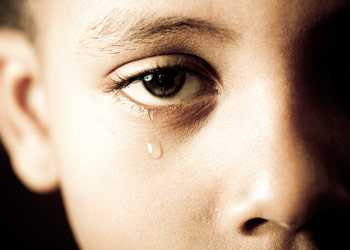.
 |
|
Breaking the cycle of child abuse
from: HelpGuide.org
-- your guide to emotional and mental health
If you have a history of child abuse, having your own children can trigger strong memories and feelings that you may have repressed. This may happen when a child is born, or at later ages when you remember specific abuse to you. You may be shocked and overwhelmed by your anger, and feel like you can't control it. But you can learn new ways to manage your emotions and break your old patterns.
Remember, you are the most important person in your child's world. It's worth the effort to make a change, and you don't have to go it alone. Help and support are available. |
Tips for changing your reactions
- Learn what is age appropriate and what is not. Having realistic expectations of what children can handle at certain ages will help you avoid frustration and anger at normal child behavior. For example, newborns are not going to sleep through the night without a peep, and toddlers are not going to be able to sit quietly for extended periods of time.
- Develop new parenting skills. While learning to control your emotions is critical, you also need a game plan of what you are going to do instead. Start by learning appropriate discipline techniques and how to set clear boundaries for your children. Parenting classes, books, and seminars are a way to get this information. You can also turn to other parents for tips and advice.
- Take care of yourself. If you are not getting enough rest and support or you're feeling overwhelmed, you are much more likely to succumb to anger. Sleep deprivation, common in parents of young children, adds to moodiness and irritability—exactly what you are trying to avoid.
- Get professional help. Breaking the cycle of abuse can be very difficult if the patterns are strongly entrenched. If you can't seem to stop yourself no matter how hard you try, it's time to get help, be it therapy, parenting classes, or other interventions. Your children will thank you for it.
- Learn how you can get your emotions under control. The first step to getting your emotions under control is realizing that they are there. If you were abused as a child, you may have an especially difficult time getting in touch with your range of emotions. You may have had to deny or repress them as a child, and now they spill out without your control.
Helping an abused or neglected child
What should you do if you suspect that a child has been abused? How do you approach him or her? Or what if a child comes to you? It's normal to feel a little overwhelmed and confused in this situation. Child abuse is a difficult subject that can be hard to accept and even harder to talk about.
Just remember, you can make a tremendous difference in the life of an abused child, especially if you take steps to stop the abuse early. When talking with an abused child, the best thing you can provide is calm reassurance and unconditional support. Let your actions speak for you if you're having trouble finding the words. Remember that talking about the abuse may be very difficult for the child. It's your job to reassure the child and provide whatever help you can.
Tips for talking to an abused child
- Avoid denial and remain calm. A common reaction to news as unpleasant and shocking as child abuse is denial. However, if you display denial to a child, or show shock or disgust at what they are saying, the child may be afraid to continue and will shut down. As hard as it may be, remain as calm and reassuring as you can.
- Don't interrogate. Let the child explain to you in his or her own words what happened, but don't interrogate the child or ask leading questions. This may confuse and fluster the child and make it harder for them to continue their story.
- Reassure the child that they did nothing wrong. It takes a lot for a child to come forward about abuse. Reassure him or her that you take what is said seriously, and that it is not the child's fault.
- Safety comes first. If you feel that your safety or the safety of the child would be threatened if you try to intervene, leave it to the professionals. You may be able to provide more support later after the initial professional intervention.
|